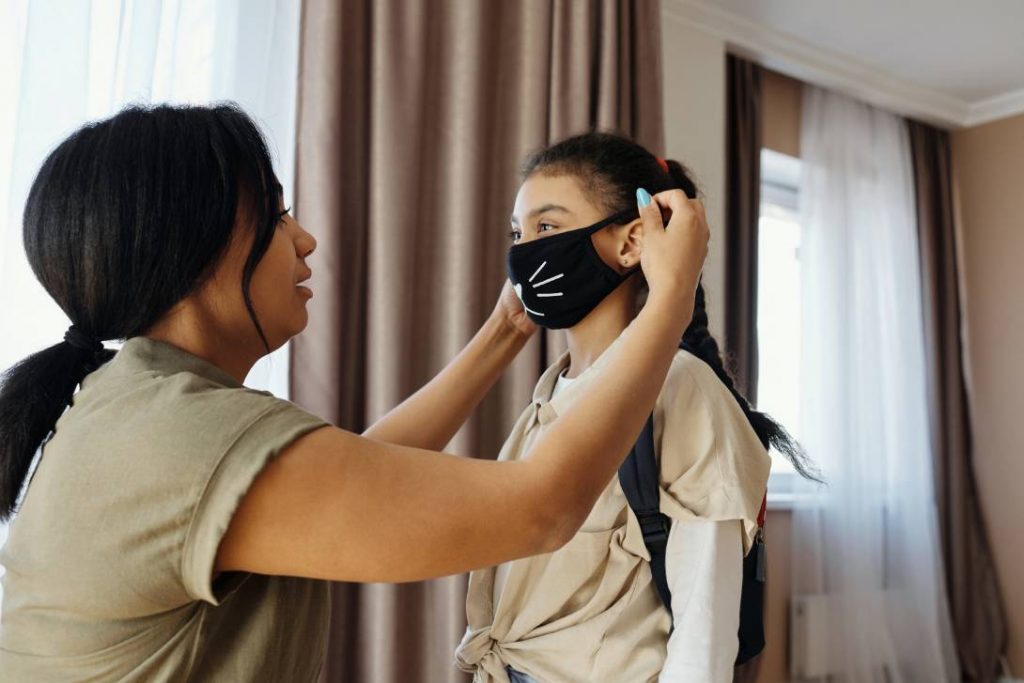Over the course of Covid-19 and other major political, social, or financial shifts in 2020, you may have picked up on a peculiar trend in mental health.
There is marked increase in cases of people seeking mental health treatment, identifying experiences of new mental health issues, or generally reacting to events in ways that may be considered non-neurotypical as a result of dramatic changes.
Generally speaking, this may be due to a phenomenon known as collective trauma. In this post, we’ll take a look at what collective trauma is, and how current events are likely to affect people on a personal, social, and societal level.
What is Collective Trauma?
Let’s start with the basics — what is collective trauma exactly?
Trauma is something most people are familiar with, but not everyone understands the full range of experience that might fall under traumatic experiences. Many people assume this is reserved for particularly hard or shocking experiences, like the death of a loved one, the loss of a long term career, or other life altering events.
The truth is, psychological trauma has a lot more to do with perspective and the effects of an event or events on our psychological state. Trauma is the result of an acute or prolonged distressing experience that leaves our mind altered, and is often how we describe the state of our mind as it attempts to recover from or cope with that prolonged stress factor.
Collective trauma is a term that refers to psychological trauma on a wider scale that often affects groups of people. It could be a family unit, a social circle, or a whole society of people. More often than not, collective trauma is the result of a prolonged distressing event that affects a broad swath of any group or population.
Trauma and the Individual

Let’s break down the effect of trauma, and the individual component of collective trauma. As we just mentioned, trauma is common in highly distressing situations, but any situation that is distressing for an individual can lead to trauma and the associated mental health issues that come with it.
The Effects of Trauma
Psychological trauma is much like a physical wound for the mind. In the same way that you could break an arm and suffer a variety of associated issues long after the actual incident, psychological trauma can linger and impact your mental health in a number of unexpected or seemingly unrelated ways.
Some common symptoms of trauma are:
- Anxiety
- Insomnia
- Worsening of previously existing mental health issues
- Sensitivity to events, memories, or experiences that remind you of the trauma (triggers)
- Grief
The list goes on. As with any mental health experience, trauma and its effects are as varied as the individual that may be suffering from them.
One of the more difficult aspects of trauma is that it often engenders avoidant behavior, or changes to behavior as an attempt to reconcile your pre-trauma experience with your post-traumatic experiences. Practically speaking, that means a lot of people avoid talking about it, avoid seeking help with a professional psychological consult, or pursue unhealthy coping mechanisms to avoid resolution.
A Note on Trauma and Severity
More than that, many people who suffer from trauma or post-traumatic stress disorders may not recognize these behaviors in themselves. This can make it particularly difficult to diagnose. Not all trauma is obvious, and that’s an important point we want to make.
Not every experience that causes trauma is life altering. And sometimes even when it is, we don’t recognize that it affects us.
While big things like loss, major life events, and world events are more likely to cause trauma, smaller experiences that may cause us a great deal of personal distress can still have similar effects.
Maybe you had an embarrassing experience on a date, or didn’t get into the university you wanted and are doubting yourself. These things can stick with us, and under certain circumstances, can create a lingering sort of trauma depending on how well we are able to manage our mental health and recover from the distressing nature of the experience.
A Note on Comorbidity and Diagnosis
Comorbidity is a large factor as well. If you are already prone to mental health issues such as anxiety or depression, you are more likely to internalize and suffer from certain experiences that can complicate and deepen the distress you feel.
The best response is to recognize when these things are affecting your mental health as best you can, and consult a mental health professional to receive a proper diagnosis and treatment.
Self-diagnosis is not a reliable method, so if you’re concerned that you may be suffering from unresolved trauma or other mental health issues, rely on a mental health professional to guide and support you through discovering, caring for, and potentially resolving your mental health concerns.
Individual Trauma and Covid-19

Returning to our topic of collective trauma, let’s take a look at how something like Covid-19 can impact the individual, which in turn can impact the collective.
Covid-19 has several key points that are likely to cause distress for individuals:
- Social Distancing
Social distancing is the most noticeable aspect of Covid-19 preventative measures to impact mental health on a wide, individual scale.
People are accustomed to some degree of social interaction throughout their normal lives, and suddenly having restrictions or a complete cessation of social interaction can be traumatic for many people. Whether it’s as simple as your dating life being disrupted to something extreme like not being able to visit a sick relative in intensive care, most people will experience some degree of distress.
It’s important to remember that this is a relatively necessary measure to preserve health and safety for yourself and your community. But it’s also important to remember that a thing being necessary does not negate the negative effects it may have on your personal stress levels.
- Fear and Uncertainty
Due to the global nature of the Covid pandemic and the constant news cycles and constant media coverage, there is a good deal of stress coming from people’s health safety fears and the uncertainty presented.
People are worried about their health, about the health of others, and this fear can play out a number of ways. People may avoid places or experiences that often provide comfort, or they may develop an aversion to otherwise normal interactions for fear of contracting a disease.
Similarly, the lack of guaranteed resolution in terms of when Covid will be less of a threat or when we will see more information or a lessening of concern from the medical community may leave people afraid and uncertain about what to do or when things will settle down.
- Disruption of Normality
Encompassing both of the above examples, and one of the largest factors, is the disruption of daily life. People are accustomed to developing and carrying out routines that make them feel safe, secure, and normal.
Routine is an excellent way for many people to feel a sense of security and comfort in their lives, and having that routine disrupted can often be stressful. In most circumstances, these disruptions are minor or temporary, which allows us to resolve the stress rather quickly.
But as we see with this pandemic, the disruption has a much longer and lasting impact on our routines, to the point that many people have begun settling into a sort of pandemic-centric routine. Masks are becoming commonplace, changes to social venues are more expected, and so on.
So what does all of this mean for the individual?
All of these factors are capable of contributing to what could be called a traumatic experience.
The increasing and prolonged exposure to stress factors is the core of developing trauma, and even for the most well-adjusted and unbothered people, these changes are a real factor in our lives.
Even if nothing has changed in your personal life due to Covid, you are still being exposed to the effects it has on others, on the society around you, and on the large scale of social awareness that shapes our personal relationship with the world around us.
Effect on Relationships

This individual experience naturally shapes and bleeds into our relationships.
Individual mental health is a significant factor in the development, maintenance, and preservation of our social relationships. That includes things like friendships, romantic or physical relationships, and marriages, professional relationships, and everything else.
As we adapt to the world around us, through measures like social distancing for example, the standard way that we personally interact with others is likely to change. You may walk around your house and interact with people that you live with in a fairly typical way, but step out of your house and things are quite a bit different.
Even your home life may shift, depending on how social distancing has impacted your work situation. Working from home and increasing exposure to your kids, your spouse, your roommates, or perhaps experiencing a new level of isolation can have a lasting impact on both your mental health and those relationships.
Interwoven Impact of Mental Health and Traumatic Experience
The point is that mental health is connected to everything you do.
Think of a time where you had a really bad day. How did you act towards yourself? How did you act to those around you? Maybe you were more angry or less communicative, and it affected your relationships somehow.
What we’re seeing with the pandemic is a prolonged exposure to stress factors that is aggravating mental health, creating trauma in individuals, and beginning to impact relationships as a result. People are stressed out.
The danger here is the interwoven or multiplicative risk of prolonged stress on individual and interpersonal well being. The immediate effects on your life may lead to decisions and actions based on an unhealthy reaction to this stressful event, but once this event ends you may have planted the seeds for lingering distress as a result of unmanaged mental health.
Avoiding Lasting Trauma by Managing Mental Health
Job loss, stress in romantic relationships due to more or less time together, and professional relationships are / have changed due to work from home dynamics.People getting a divorce or quitting their job or fighting with their relatives can create more stress factors in the moment, and stress factors that linger long after the pandemic ends.
There’s just so much happening on the individual and interpersonal level that it can be hard to breathe and take stock of your own mental well being, which in turn makes it hard to manage your relationships. Just like a plane safety presentation, you have to put on your own oxygen mask before you can help others with theirs.
Finding health personal or professional means of managing your mental health mid-crisis is a vital aspect of preserving your mental health in the long run. It may not prevent trauma or completely avoid the results of less secure mental health, but you can at least mitigate the experience and reduce the likelihood of stress-driven decision making.
So what is all of this leading up to?
Collective Trauma and Resolution

Looking at how this sort of event impacts the individual and how that impact sends shockwaves up the social spectrum from individual scale to societal scale, we can better understand the value of certain preventive measures and mental health management and care throughout.
Collective trauma has two major parts. The individual and interpersonal part that was just discussed, and the lasting societal impact that happens as a result. People will act differently even after the event ends, and that’s very much the result of our collective experience altering our behaviors for a prolonged period of time.
Historical Precedent
With enough time, those altered behaviors become normalized and internalized. Even if things were to go back to normal tomorrow, we’d still have some elements of our experience of the last 6 months that alter behavior and impact mental health. This highlights the absolute critical nature of mental health care during and after these events as a means of managing the trauma people are currently experiencing and developing.
For historical examples, we can look at World War II or anybody that lived through a great economic depression. Beyond the acute cases of soldiers and PTSD experienced by people closer or more directly affected by warzones, there is a ripple effect on people even when they were separate from the warzone areas.
Hoarding food even when there’s no shortage, a changed perspective on governmental action, living with a sense of grief due to loss or lack of participation. These were all common experiences, and that’s just looking at a post WWI America. Events on a global scale are without fail going to have a lingering effect on individuals and societies, whether they were directly impacted or simply witnessing the events.
Looking Towards the Future
So what does that tell us about today?
We need to be prepared to address mental health needs on a large scale starting at the individual level. People with previous mental health conditions are more likely to be impacted by this, but depending on their relationship with mental healthcare previously, they may at least have an infrastructure in place to begin the discussion.
However, a large majority of people may have developed or realized new mental health struggles in this time of great distress. Even for people whose only struggle is the traumatic experience of living through a global pandemic, mental healthcare and management may provide a faster route to recovery while preventing the development of other, additional mental health issues as a result of that trauma.
Clearly there’s no way to provide a global blanket solution. Mental healthcare has always worked best by addressing the individual, but this event should be a clear and obvious signal that we need a more expansive and readily available response to a great need for mental health care everywhere.
The better we are as individuals, the more we can support our communities at home and abroad. Mental well being is a core element of making that happen.
How to Get an Official ADHD Diagnosis

Almost five percent of Americans have ADHD, with numbers varying…


